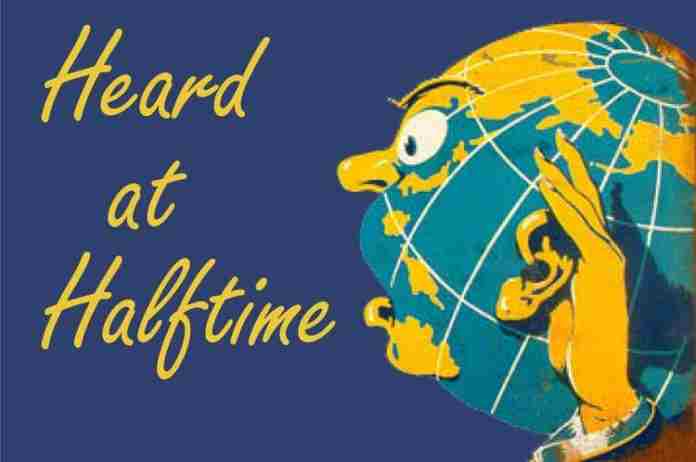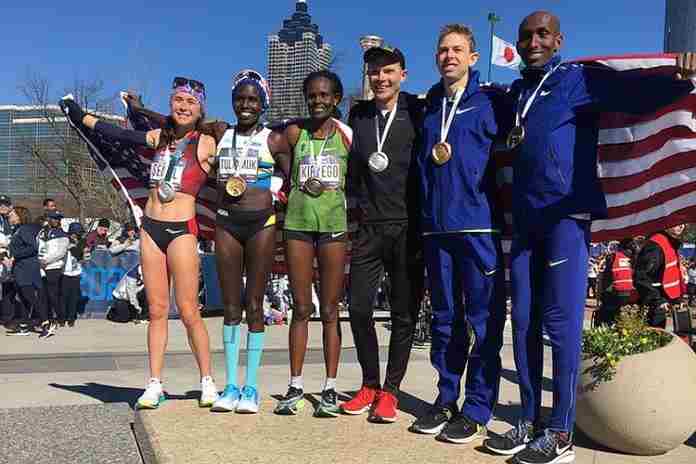This week’s headlines were all about comments from the senior member of the International Olympic Committee – not its President – that this summer’s Tokyo Games could be so deeply impacted by the coronavirus outbreak that the event could be canceled.
Canada’s Dick Pound, a 1960 Olympian in swimming and the 1962 Commonwealth Games champion in the 110-yard Freestyle, was elected to the IOC in 1978 and at 77, is its longest-serving member. A highly-respected lawyer, he was Chancellor of McGill University for 10 years, the first President of the World Anti-Doping Agency and a lot more. He is a keen observer and analyst of international sport, and when he speaks, it’s worth listening.
On Tuesday, he spoke to the Associated Press about the impact of the coronavirus situation and, was – as always – direct:
“In and around that time [end of May], I’d say folks are going to have to ask: ‘Is this under sufficient control that we can be confident about going to Tokyo or not?’”
He suggested that given the complexity of the event, cancellation was much more likely than postponement:
“You just don’t postpone something on the size and scale of the Olympics. There’s so many moving parts, so many countries and different seasons, and competitive seasons, and television seasons. You can’t just say, `We’ll do it in October.’”
As for the athletes, Pound was reassuring:
“As far as we all know, you’re going to be in Tokyo. All indications are at this stage that it will be business as usual. So keep focused on your sport and be sure that the IOC is not going to send you into a pandemic situation.”
Was he speaking out of turn? Apparently not.
There was no statement repudiating his comments from the IOC headquarters in Lausanne; in fact, the respected AroundTheRings.com Web site received a comment from the IOC Press Office which (translated from Spanish) noted:
“Dick Pound explains very well that the IOC continues to work towards the successful Tokyo 2020 Olympic Games from the end of July” and that “Preparations continue as planned.”
All true.
Gov. Yuriko Koike, head of the Tokyo Metropolitan Government – which has sunk more money into the event than any other entity – told reporters “I have emails from IOC members in charge of the Tokyo Games telling me to work hard in preparing for the event. The metropolitan government will pursue measures against the virus.”
The reality is that the coronavirus is a major problem in China and less of a problem – so far – elsewhere. Click here to see a terrific “dashboard” view of the coronavirus impact compiled by the Johns Hopkins Center for Systems Science and Engineering. As of Wednesday evening, it showed 82,163 confirmed cases, with 78,497 in China, 1595 in South Korea and, so far, 189 in Japan. In addition to 2,800 deaths worldwide, there are also 32,828 reported recoveries, so it’s not all bad news.
There has been plenty of speculation on what might happen to the 2020 Games if the virus spread – in a serious way – to Japan. Koike dismissed a comment from London mayoral candidate Shaun Bailey that London could take over the Games, and others have suggested Los Angeles as a possible location, given the enormous sporting infrastructure already in place.
Neither could happen and neither will happen. The 2020 Games will take place in Tokyo, but the impact could be severe.
As for London, Los Angeles or elsewhere, it’s too late to put together anything resembling an Olympic Games as the facilities, hotels and especially the athlete housing – at UCLA in Los Angeles – is all spoken for well in advance, for summer school, camps, conferences and the like. And Pound made it clear that spreading the events around the world on a sport-by-sport basis creates a series of world championships, not an Olympic Games.
If – and it’s only if the virus becomes a real public health threat – you could see a solution to the problem that is already being implemented in Japan, and elsewhere:
No spectators.
On Wednesday, Nippon Professional Baseball – Japan’s major league – announced that its teams would play its remaining 72 pre-season games without any spectators. “This was a bitter decision to make. Because we can’t determine the situation, I won’t say anything right now about (opening day),” said NPB commissioner Atsushi Saito. “If possible, we all want to go ahead on March 20.”
Japan’s governing bodies for boxing, rugby and soccer have all postponed matches, waiting to see how the health situation develops. Many events are being canceled elsewhere, including in Iran, Italy and South Korea.
Having an Olympic Games without spectators would not only be lonely, but crushing for the Japanese public, which has clamored for tickets in unprecedented numbers. For the Tokyo organizing committee, ticketing revenue was budgeted at $800 million U.S. (converted from yen), in a total budget of $5.9 billion, and would create a substantial shortfall, even after some savings from not having spectators.
A dead arena is also no fun for the athletes, whose lifelong dream of competing in an Olympic Games will be turned dull and sterile without a live crowd (even if there is cheering via sound effects).
But in a no-win scenario, having the Games is much better than not having it. The international news media would be accommodated – especially television – and the necessary sports officials would participate. But eliminating the mass gathering of spectators and others would significantly reduce virus fears; for example, the annual Tokyo Marathon scheduled for 1 March announced recently that only the elite field of about 200 would participate, eliminating the race for the 37,000+ registrants.
There will be problems all around – what about the Olympic Village? – and even the IOC’s wealth will be insufficient to make everyone whole. It will be a mess … but much better than seeing a public health crisis exacerbated by the world’s largest sporting event beginning 24 July (and followed by the Paralympics on 25 August).
Likely? Certainly not at this point. Possible? Only if the virus comes much more of an issue in Japan than it is now. But unless the situation turns into a lethal pandemic, the Games will go on. But possibly, rather quietly.
Rich Perelman
Editor
You can receive our exclusive TSX Report by e-mail by clicking here. You can also refer a friend by clicking here.
(Thanks to reader Greg Cornell for catching a typo!)


























